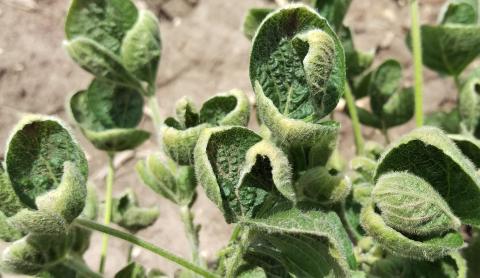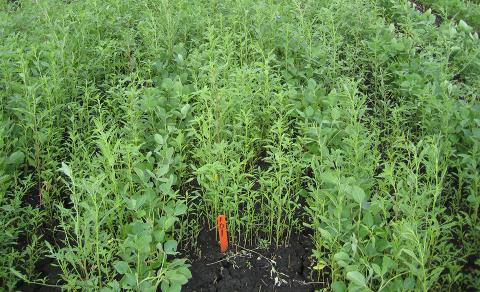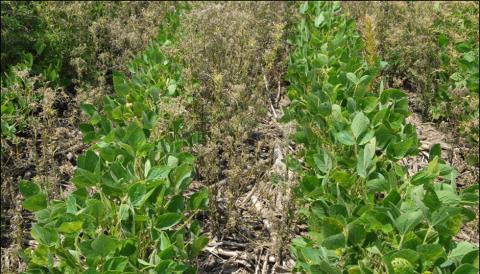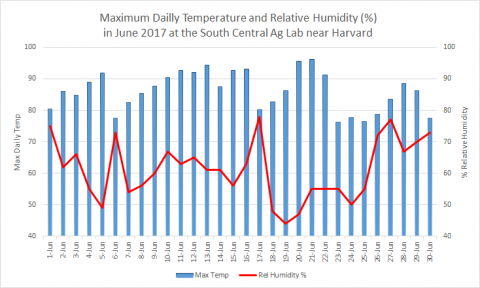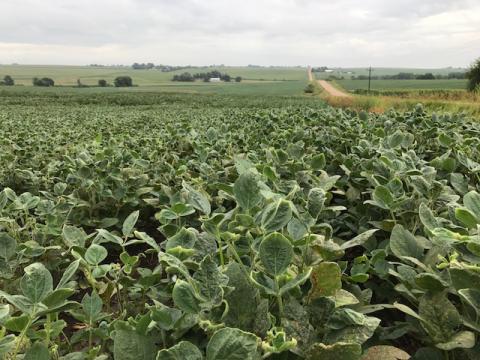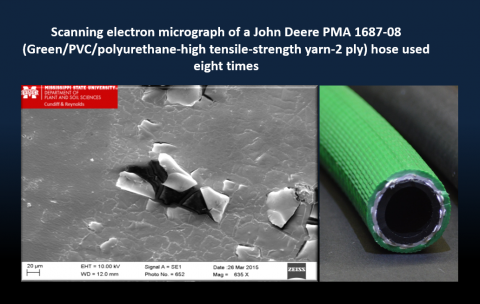How Temperature and Rain Can Affect Burndown Herbicides
April 3, 2020
Finding a good time for burndown herbicide applications has been a little tricky this spring, given the below-normal temperatures the first half of April and intermittent snow and rain, all of which can decrease herbicide efficacy. Checking the forecast can help identify an optimal window for application.
Planning Ahead for Winter Wheat: Review Corn and Soybean Herbicide Programs
April 13, 2018
If you're considering planting winter wheat next fall, be sure to review the corn and soybean herbicide programs you plan to use this spring to avoid rotation restrictions that would limit your cropping options.
Dicamba Off-target Injury Issues in Nebraska Soybean
January 8, 2018
To avoid some of the off-target dicamba injury that occurred in 2017, new label requirements and application recommendations are being made for 2018. This is an article from the Proceedings of the 2018 Nebraska Extension Crop Production Clinics.
Pre-emergence Residual Herbicides are the Foundation of Soybean Weed Control
March 29, 2018
Even with new dicamba-resistant soybeans, pre-emergence, residual herbicides are needed to mitigate yield loss due to weed competition, provide a longer time for soybean to establish, and reduce selection pressure for weeds resistant to post-emergence herbicides.
Herbicide Options for Managing Glyphosate-resistant Common Ragweed in LibertyLink Soybean
March 1, 2018
Results from a 2017 weed management trial on glyphosate-resistant ragweed indicated two applications were often more efficient and cost effective than either three applications or one application of herbicide.
Potential Off-Target Dicamba Movement from Corn Applications
February 15, 2018
While the new soybean dicamba herbicides were often blamed for injury to sensitive plants in 2017, a deeper look at the timing of injury and the weather conditions at those times suggests dicamba applications in corn may have contributed to plant injury in many areas. Increased management for all dicamba applications will be needed in 2018.
Can We Manage Dicamba Applications in 2018?
February 15, 2018
Factors leading to dicamba injury and how growers will need to practice best management practices with all dicamba applications in 2018 to help reduce injury to susceptible crops and other plants. This article discusses key practices to implement.
Removing Dicamba Residues from Your Sprayer: A Tricky Task
February 15, 2018
Thoroughly cleaning your sprayer both before and after applying dicamba is required and can help reduce the potential for off-target damage. Check these recommended practices and see what research at Mississippi State University found when testing sprayer hoses.

